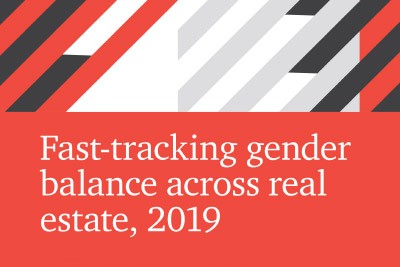By joining Real Estate Balance’s email list, you agree to receive email updates from time to time about organisation news, events being held and information about our partners in accordance with the terms outlined in our privacy notice, which you can read in full here.
Sign upReal Estate Balance industry survey 2022
We have published the results of our 2022 survey – the most comprehensive study of Diversity, Equity & Inclusion (DEI) in the property industry.
Please click here to download the results in full.
Commissioned every two years and now in its fourth edition, the sector-wide survey helps to track progress, uncover the key DEI issues within real estate, and identify where change is needed most.
The 2022 results add to the evidence base we have been building since 2016 when we carried out our very first survey, helping to develop an up-to-date picture of where the industry currently stands on DEI.
The research also enables the sector to share and develop best practice, and can be used as a benchmarking tool against which real estate organisations can measure their own DEI performance.
The data was collected in September 2022 via two anonymous surveys: the Company Survey and the Employee Survey. Over 30 real estate organisations and more than 750 property professionals took part.
Key findings include:
- The gender gap between middle management and senior leadership has not only persisted but worsened since our first survey in 2016.
- Companies report improvement in embedding the Real Estate Balance CEO Commitments on Diversity, with the greatest improvement in diversity data gathering, tracking and reporting.
- Both companies and employees agree that social mobility, gender and ethnicity are the biggest DEI challenges facing the real estate industry.
- Hybrid working has been positive for employee work-life balance, mental health and productivity, but makes accessing development opportunities and connecting with colleagues more challenging. Overall, men see hybrid working more negatively than women.
Speaking about the survey, Sue Brown, Managing Director of Real Estate Balance, said:
“Gathering accurate data is vital in helping us understand how the industry is progressing with DEI, so I’d like to thank everyone who took part in our 2022 survey.
"The last two years have seen huge changes to the way we work and it’s fascinating to see the impact these changes are having.
"It’s clear that the industry is continuing to grapple with issues around social mobility and ethnicity, and we need to ask ourselves why diverse middle managers are still not reaching senior leader level.
"Along with our members, I look forward to working on the solutions that address these imbalances, helping to create a more robust and representative sector for everyone.”
Real Estate Balance industry survey 2022 – summary of results:
Gender
- Between 2016 and 2020, gender balance at Board level improved from 20% to 30%, but this has been flat to declining since 2020.
- The gender gap between middle management and senior leadership has not only persisted but worsened since the first survey in 2016.
- More women think their employer does not deal with gender equality issues well, than is the case for men. Things are improving, with a decrease in dissatisfaction from 2020. Women also see DEI as more important to their job satisfaction than men.
Ethnicity
- The ethnic mix of employee survey respondents is in line with the national average, but well below London averages, suggesting opportunity for improvement given that much of the industry is London-centric.
- A lack of diverse candidates at middle management was cited as the biggest challenge in achieving increased ethnic diversity at senior levels.
- More non-white employees think their employer does not deal with ethnic equality issues well than is the case for white employees. Non-white employees also see DEI as more important to their job satisfaction than white employees.
Social mobility
- Employee respondents are more privileged than the national average on two out of three measures of social mobility (socioeconomic background and schooling).
- Social mobility is currently tracked by 38% of company respondents, but an additional 44% plan to track this area in the future.
General
- Both companies and employees agree that social mobility, gender and ethnicity are the biggest DEI challenges facing the real estate industry. These are also the areas of highest employee dissatisfaction – as well as the areas where REB’s work is focused.
- Companies report improvement in embedding the Real Estate Balance CEO Commitments on Diversity, with the greatest improvement in diversity data gathering, tracking and reporting.
- Age, gender, physical disability and ethnicity are the most commonly tracked areas of diversity.
- Employees rank culture change, talent development for women and minority groups, and flexible working programmes as key to improving diversity and inclusion.
- Employee discomfort in discussing career and life aspirations with line managers is worsening – particularly for men. In prior surveys, this was more of an issue for women.
- 91% of companies reported the introduction of hybrid, flexible and/or homeworking.
- Hybrid working has been positive for employee work-life balance, mental health and productivity, but makes accessing development opportunities and connecting with colleagues more challenging. Overall, men see hybrid working more negatively than women.


